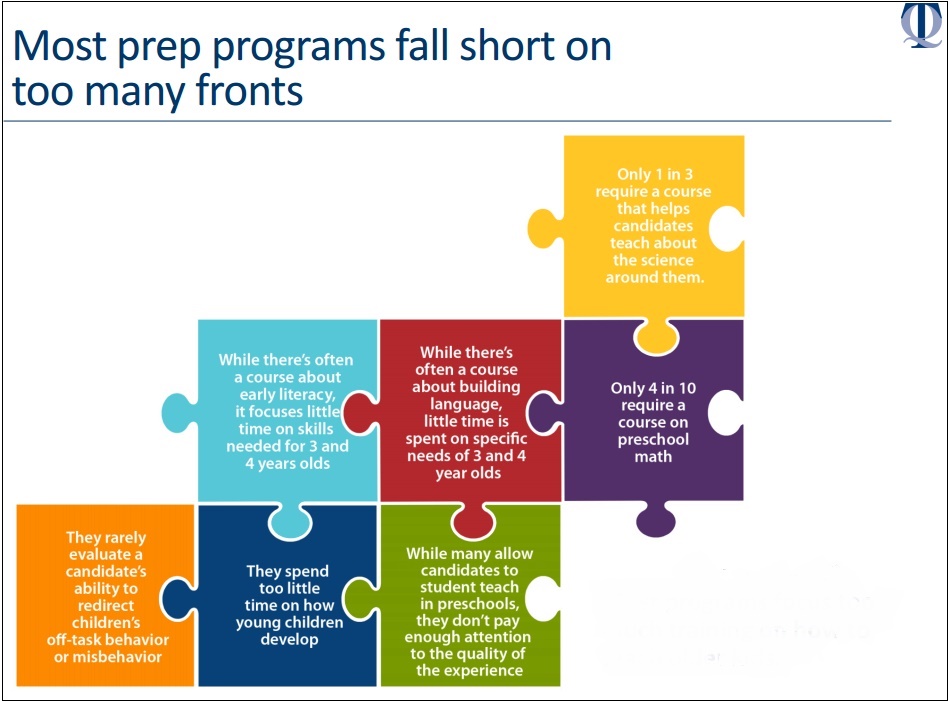The National Council on Teacher Quality (NCTQ) recently reviewed one hundred of the nation’s pre-K teacher prep programs, attempting to answer whether pre-K teacher candidates are being taught what they need to know to be effective in their future jobs.[1] The answer is, largely, no. This should be sobering news, especially for folks here in Ohio as many head to the November ballot hell bent on expanding pre-K.
The bottom line, reported NCTQ, is that most of the programs reviewed spend far too much of their limited time on how to teach older children rather than on the specific training needed to teach three- and four-year-olds. Some specific findings are neatly summarized in the following slides from NCTQ:


NCTQ recommends, among other things, that states narrow their licensure to certify educators for no more than pre-K through third grade (as Ohio already does), rather than treating pre-K as a part of an overall elementary credential; that they encourage teacher prep programs to offer either more-specialized degrees or early childhood education as an add-on endorsement; that they ensure that prep programs require courses in critical areas such as emergent literacy, early childhood development, or early math and science; and that they encourage future pre-K educators to do their student teaching with rock star teachers.
All good suggestions, but all heavy lifts, especially for a state like Ohio, whose teacher prep programs aren’t so hot anyway.
Perhaps Ohioans keen to expand pre-K should first make sure they’ve got the makings of a competent workforce to do the job right. If we’re going to put a lot of ed-reform eggs into the pre-K basket, that basket better be strong and well-stocked.
SOURCE: Hannah Putman, Amber Moore, Kate Walsh, “Some Assembly Required: Piecing Together the Preparation Preschool Teachers Need,” National Council on Teacher Quality (June 2016).
[1] Researchers examined one hundred programs in twenty-nine states that certify pre-K teachers, most of them offering bachelor’s and master’s degrees. They reviewed course requirements and descriptions, course syllabi, student teaching observation and evaluation forms, and other course materials required for degree completion.
